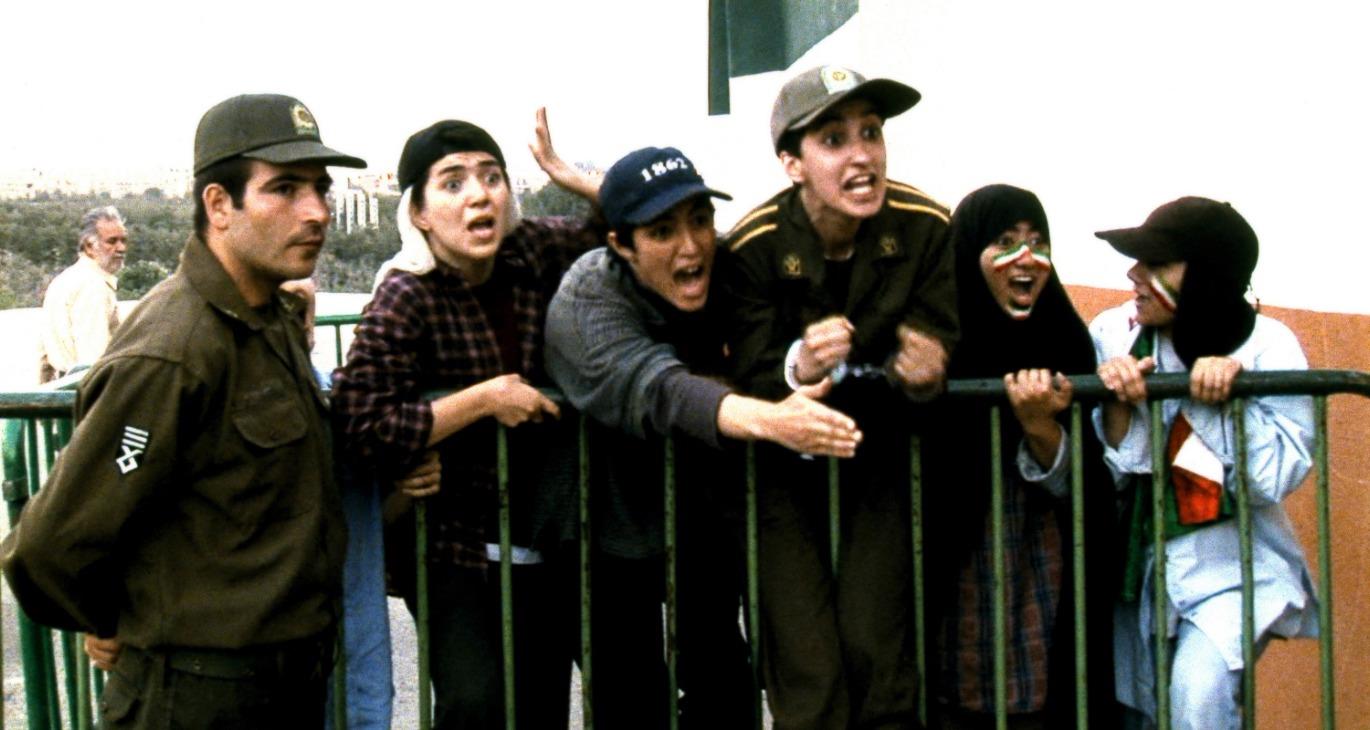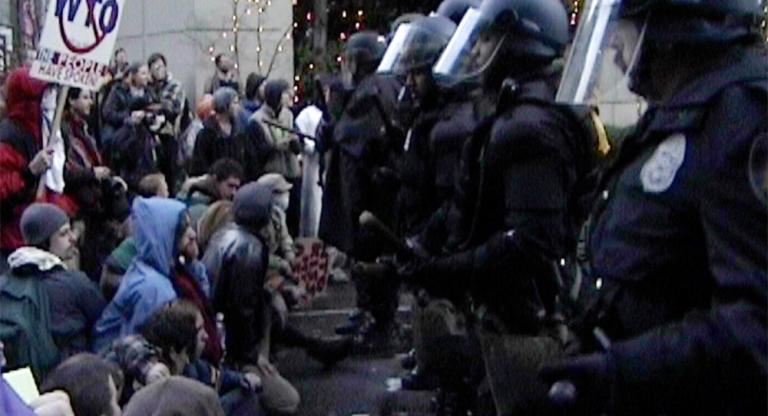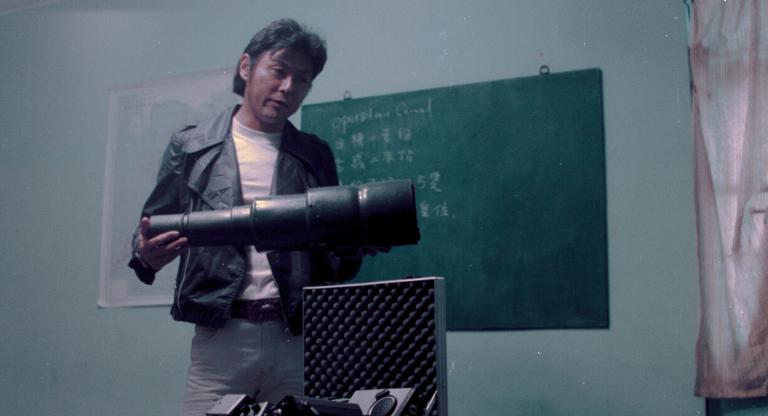Just over 90 minutes long, Jafar Panahi’s Offside (2006) runs almost exactly the time of the real-life soccer game at its center, the June 2005 World Cup qualifier between Iran and Bahrain in Tehran’s Azadi Stadium. “Azadi” is Persian for “freedom,” but this is a film about confinement, specifically the repression of women, banned from attending games after the country’s 1979 Islamic revolution. Offside unfolds like a documentary, and indeed the footage of the crowd’s arrival at the stadium—their raucous post-game response in the streets and some brief shots inside the stadium during play—were filmed vérité-style by Panahi on the day of the game. But in true Panahi fashion, simplicity is deceptive. Despite its real-time approach and seeming spontaneity, Offside was filmed over 38 days. It is a carefully constructed and cleverly subversive narrative film that expressively contrasts the open spaces of the men enjoying the game in the stadium with the harshly confined space given to a group of women who disguise themselves in drag to try to sneak in. Panahi exposes the demeaning absurdity of the rules that constantly declare women “offside.”
The women hoping to get into the stadium are detained by soldiers, corralled into a makeshift holding pen that is tantalizingly close to the action; the game is in earshot, but out of sight. As the number of detained women grows, so does their solidarity; they begin to feel free to taunt their captors and debate with them. In the film’s most dramatic and hilarious scene, a guard escorts one of the captors to a bathroom inside the stadium. The need to cordon off the bathroom (there are only men’s rooms in the stadium) leads to a chaotic confrontation with the guard and a horde of men desperate to relieve themselves; in the chaos, the woman runs out of the bathroom to get a view of the on-field action, which we see for less than five seconds. But this sudden glimpse of the athletes running across the expansive green field is a powerful counterpoint to the claustrophobic confinement of the women. As in his best films, such as this year’s Palme D’Or-winning It Was Just an Accident, the never-ending clash between the authoritarian regime and its oppressed citizens is a source of dark humor and biting commentary for Panahi. Much of the humor in Offside comes from the contrast between the women captors’ deep understanding and love of the intricacies of soccer and the befuddlement of the soldiers, who can do little more than follow orders that they barely comprehend.
Although Offside was made before Panahi’s 2010 arrest and 20-year ban on filmmaking and travel (a ban he has brilliantly circumvented), he resorted to trickery to get it made, submitting a false script to authorities, with boys as the main characters, to get permission to film. As it turned out, the film was remarkably timely and politically relevant. The Iran-Bahrain game came just weeks before a pivotal national election. One of the reform candidates, sports minister Mohsen Mehralizadeh, a women’s rights advocate, was actually at the game, with a group of 100 women he invited. And a separate group of women protestors, demanding seats at the game, showed up on their own, demanding admission. They were detained, much like the women in the film. In the election, Mohsen Mehralizadeh finished well behind the ultimate winner, the far-right wing Mahmoud Ahmadinejad. In the past 20 years, there have been attempts to lift the ban at the pressure of FIFA, the world football organization. In 2019, Sahar Khodayari, a 29-year-old Iranian woman and fervent soccer fan known as “Blue Girl” for her support of her favorite team, Tehran’s Esteqlal F.C., attempted to see a game at Azadi Stadium. She was arrested and protested by burning herself to death in front of the city’s Eshrad Courthouse. Her self-immolation sparked national protests. Later that year, women were allowed to attend a soccer game for the first time since the ban, but with heavy restrictions (they were only allowed to make up 3% of the crowd), and in 2022, Iranian women were again completely banned from entering the stadium for another World Cup qualifier, against the backdrop of nationwide protests against the compulsory hijab. While Offside ends on an optimistic note, the film is clear-eyed in its critique of the authoritarian regime, and sober in its understanding that nothing but football seems to have the power to truly unite the country in joy, but only for a brief moment.
Offside screens this afternoon, July 19, and on July 20 and 23, at Metrograph on 35mm as part of the series “Not a Film: The Films of Jafar Panahi.”



